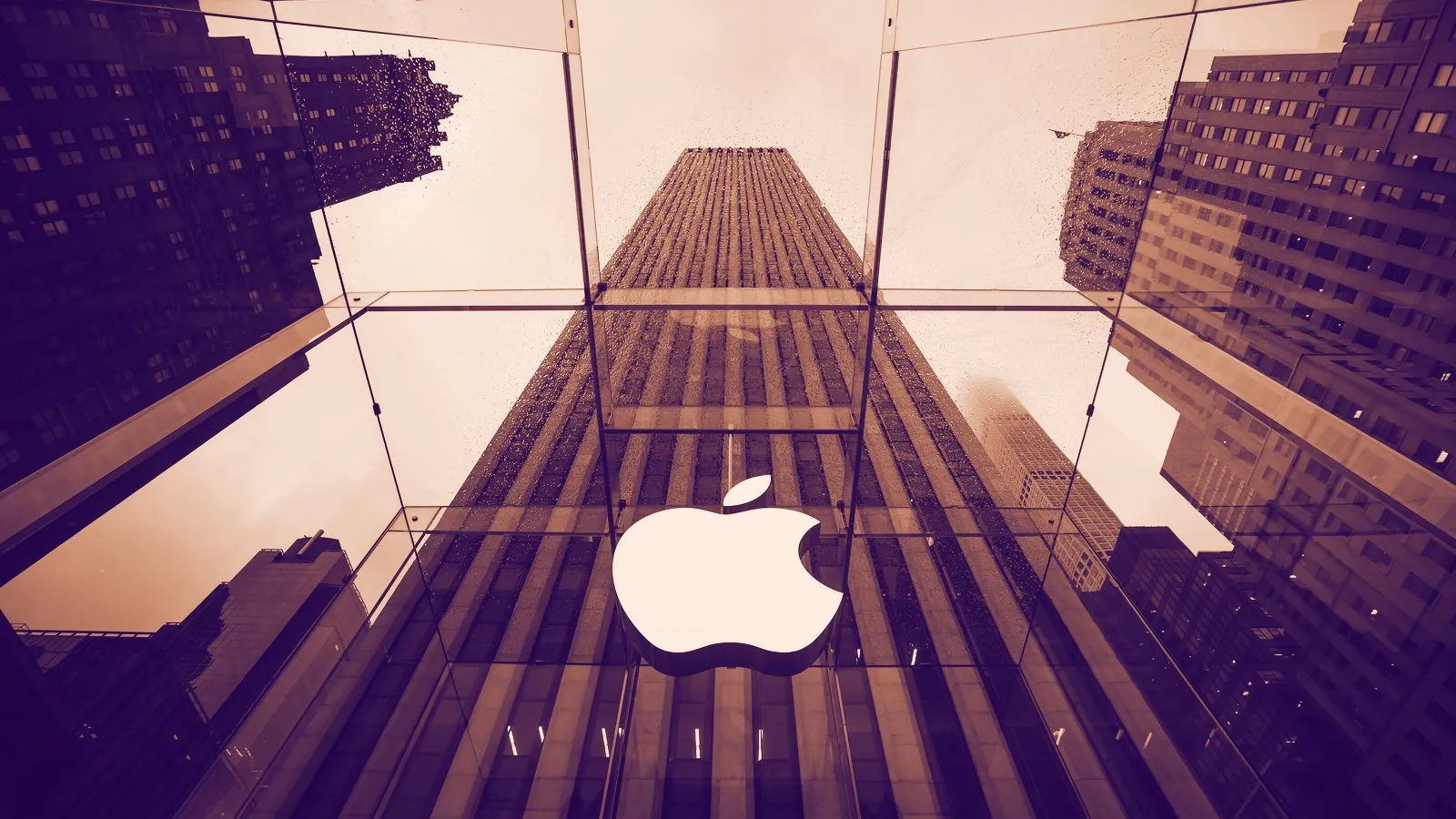In brief
- A judge ruled today that Apple can no longer block the use of external payment options in iOS apps.
- The ruling may enable easier use of cryptocurrency wallets to make payments on iPhones and iPads.
Using cryptocurrency wallets to make payments within Apple’s iOS ecosystem could soon become a lot easier, thanks to a ruling today in the case between Fortnite developer Epic Games and the iPhone-making tech giant.
Judge Yvonne Gonzalez Rogers issued a permanent injunction in the case, ruling that Apple can no longer block iOS developers’ ability to enable payments through external services. Currently, app developers on the platform can only route payments through Apple, which takes up to a 30% cut of all revenue for in-app purchases.
Apple is “hereby permanently restrained and enjoined from prohibiting developers from including in their apps and their metadata buttons, external links, or other calls to action that direct customers to purchasing mechanisms, in addition to in-app purchasing,” Gonzalez Rogers wrote in her ruling.
The ruling will take effect in 90 days, unless halted by a higher court. It’s a major blow to Apple and its “walled garden” ecosystem strategy, which has generated immense amounts of revenue since the launch of the App Store in 2008. Apple’s App Store reportedly yielded $64 billion in gross revenue in 2020 alone, per CNBC.
Epic Games challenged Apple’s locked-down ecosystem in August 2020, updating the iOS version of Fortnite to add the ability to purchase in-game currency (V-Bucks) directly from Epic. That violated Apple’s developer terms, and the game was removed from the App Store, thus leading to the legal showdown that was resolved today. The Android version of Fortnite was also removed from Google’s Play Store due to a separate conflict.
If today’s ruling goes into effect, then Apple will be forced to allow developers to build iPhone and iPad apps that feature a wider array of payment options through external services. This may ultimately open the door to much easier use of cryptocurrency wallets to pay for goods and services, and a wider array of mobile payment options for iOS users. It’s also a ruling that may cost Apple billions of dollars in the process.
Currently, it’s possible to make cryptocurrency payments within Apple Pay using certain financial service providers, such as Coinbase and BitPay. However, this ruling may open up the ability to use alternative payment options that don’t route through Apple’s own payments system, such as paying directly from a cryptocurrency wallet.
Today’s ruling may prove to be a win for consumers and Epic Games alike, although the game publisher didn’t come away unscathed. In a separate ruling, Gonzalez Rogers wrote that Epic violated its developer contract with Apple, and must pay a 30% cut of the nearly $12.2 million generated through its payment option that circumvented platform rules—more than $3.6 million.
“Given the trial record, the Court cannot ultimately conclude that Apple is a monopolist under either federal or state antitrust laws,” Gonzalez Rogers wrote in the full judgment. “Nonetheless, the trial did show that Apple is engaging in anticompetitive conduct under California’s competition laws. The Court concludes that Apple’s anti-steering provisions hide critical information from customers and illegally stifle consumer choice.”
In a statement, Apple cited the ruling as a win—that “the Court recognized that ‘success is not illegal,” quoting the text of the judgement. Epic Games founder and CEO Tim Sweeney tweeted, “Today’s ruling isn't a win for developers or for consumers. Epic is fighting for fair competition among in-app payment methods and app stores for a billion consumers.”
Epic Games, which has contended that Apple is “suppressing free market competition and inflating prices,” confirmed to The Verge that it plans to appeal today’s verdict. “We will fight on,” Sweeney tweeted.

